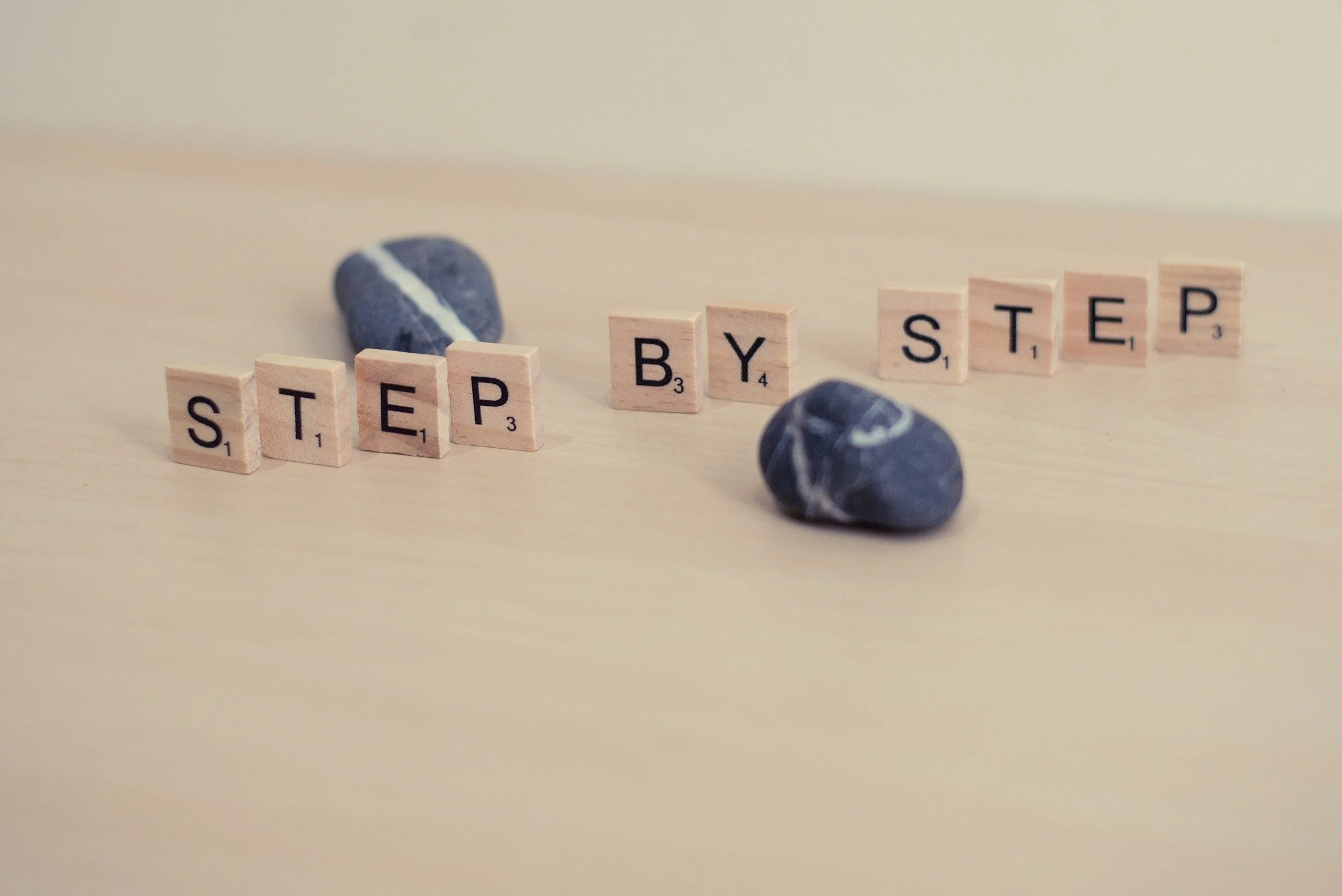Why Should I Get Mental Health Counseling?
Why Counseling Matters More Than You Think
Many people wonder if they really need therapy. You might think counseling is only for those in crisis, but mental health counseling is also about growth, prevention, and learning how to live with greater balance. Just like you would see a doctor for a checkup, therapy offers a safe space to explore emotions, understand patterns, and build healthier ways to cope with stress.
Whether you are managing anxiety, adjusting to change, or simply feeling off, counseling helps you reconnect with yourself in meaningful ways. Over time, therapy becomes less about fixing problems and more about understanding yourself, your emotions, and your relationships with others.
1. Understand Yourself on a Deeper Level
Therapy offers a chance to pause and look inward, something we rarely do in a busy life. A good counselor helps you notice the beliefs, habits, and emotional patterns shaping your daily experience.
Cognitive Behavioral Therapy (CBT), one of the most researched and effective therapeutic approaches, focuses on identifying unhelpful thought patterns and replacing them with more balanced and realistic ones. For example, someone who often thinks, “I always mess things up,” can learn to reframe that thought into, “I’ve had challenges before, but I’ve handled them.” This simple but powerful shift can reduce anxiety and depression and foster emotional resilience.
As therapy progresses, you may begin recognizing how early experiences and family dynamics influence your current reactions. Psychodynamic insights, mindfulness, or parts-work techniques can all help illuminate why certain triggers feel so strong or why old coping mechanisms still show up even when they no longer serve you.
Learning to name your emotions and understand their origins brings powerful relief. You start responding to life with awareness rather than reacting from habit. Over time, clients often describe a sense of seeing themselves clearly for the first time. This moment of self-awareness becomes the foundation for lasting change.
Try this between sessions: Spend five minutes each evening identifying one emotion you felt strongly that day. Ask yourself, “What was I reacting to?” and “What need was underneath that feeling?”
2. Build Effective Coping Skills
Therapy gives you practical tools that last far beyond the session. From mindfulness exercises to communication strategies, counseling provides hands-on skills you can use every day.
Mindfulness-based techniques teach you to slow racing thoughts and anchor yourself in the present. When practiced regularly, even for a few minutes, mindfulness has been shown by the NIH to reduce stress hormones and improve emotional regulation. Clients often find that simply noticing their breath or sensations in their body can interrupt spirals of overthinking.
Therapists may also use solution-focused approaches that highlight strengths rather than only focusing on problems. For instance, recalling a time you successfully managed stress can reveal strategies you already possess, ones that can be applied to new challenges.
Other evidence-based techniques, such as grounding or progressive muscle relaxation, can help you feel more in control when emotions surge. You might learn to use a “5-4-3-2-1” sensory grounding method to calm anxiety: identify five things you see, four you can touch, three you can hear, two you can smell, and one you can taste.
Therapy also helps you develop boundaries and self-care routines that sustain emotional health. Whether that means saying no without guilt or carving out time to recharge, these practical changes strengthen both your resilience and your relationships.
Reflect: Which coping strategies have helped you most in the past? What new ones might you want to try this week?
3. Improve Relationships and Communication
Our mental health directly impacts how we connect with others. Many people enter therapy to manage conflict, communicate clearly, or repair strained relationships.
In therapy, you can safely explore your attachment style, whether you tend to avoid closeness, cling too tightly, or find balance in connection. Understanding your attachment patterns sheds light on why certain relationships feel difficult and how to create healthier dynamics.
Dialectical Behavior Therapy (DBT) introduces the concept of interpersonal effectiveness: learning to balance your own needs with empathy for others. This might involve using “DEAR MAN” skills (Describe, Express, Assert, Reinforce, Mindful, Appear confident, Negotiate) to communicate assertively without escalating conflict.
Couples and family therapy sessions often focus on breaking unhelpful cycles of blame or withdrawal. By learning active listening and validation skills, partners can better hear each other’s emotions rather than reacting defensively.
Improving communication is not just about using the right words. It is about emotional awareness. When you understand your triggers and values, you can speak from clarity instead of frustration. Over time, this leads to deeper trust, intimacy, and mutual respect.
Therapeutic takeaway: The more you understand yourself, the easier it becomes to understand and connect with others.
4. Heal from Past Experiences
Unresolved pain from past relationships or experiences often shows up in subtle ways, such as chronic self-doubt, emotional numbness, or difficulty trusting others. Therapy helps you recognize these signs and process the past with compassion.
A trauma-informed approach ensures that healing happens safely, without re-traumatization. You remain in control of the pace and depth of exploration. Somatic awareness, or paying attention to how emotions live in the body, can be especially powerful for releasing stored tension or memories.
Therapists trained in Eye Movement Desensitization and Reprocessing (EMDR) or Internal Family Systems (IFS) often help clients reprocess painful events so they no longer carry the same emotional charge. For example, a person who once felt defined by failure might begin to view their past with understanding rather than shame.
Healing does not mean forgetting or excusing what happened. It means integrating those experiences so they no longer dictate your identity or choices. As clients gain insight and self-compassion, they often report feeling lighter, more centered, and more connected to their true self.
Consider this reflection: What story from your past still feels heavy? How might you begin to view that experience with compassion instead of judgment?
5. Foster Long-Term Growth and Resilience
The goal of counseling is not to fix you. It is to help you grow. Therapy supports your mental health just as exercise supports your body. With consistency, it builds resilience, self-awareness, and emotional flexibility.
Resilience means being able to adapt, recover, and learn from setbacks rather than being overwhelmed by them. Therapy helps you identify strengths you might have overlooked, such as your ability to problem-solve, to stay hopeful, or to keep showing up even when life feels uncertain.
Psychological research shows that people who engage in ongoing therapy often experience long-term benefits, including improved emotional regulation, stronger relationships, and a clearer sense of life direction. Over time, you begin making decisions from grounded self-awareness rather than fear or habit.
As one might tell a client, growth is not linear. Some sessions may feel like breakthroughs, while others feel quiet or reflective. Yet, each step contributes to the steady process of becoming who you were meant to be.
Practical tip: Keep a “growth journal.” Each week, note one insight or skill you practiced in therapy and how it showed up in your daily life. Awareness guides us into meaningful change.
Taking the First Step
Getting mental health counseling does not mean something is wrong with you. It means you are ready to invest in yourself and your well-being. Whether you are curious about online therapy in Ohio or simply need someone to talk with, reaching out can be the beginning of real change.
You do not have to have everything figured out to start therapy. The willingness to be curious about yourself is enough. As you move forward, therapy becomes not just a space for healing but a practice of self-discovery that supports your growth, your relationships, and your ability to live with purpose and peace.
If you are ready to explore therapy at your own pace, I would be honored to help you take that step.
— Sam Long, LISW
Founder of Long Therapy Services, LLC
-Growth and Healing, Wherever You Are-
Ready to start? Contact me today or schedule through Headway or SonderMind.
Learn more by going to About or Services pages. Have specific questions go to FAQs.
The information on this page is for educational purposes only and is not a substitute for professional therapy, diagnosis, or treatment. If you are in crisis, call or text 988 (Suicide and Crisis Lifeline) or go to your nearest emergency department.






























